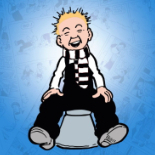http://www.football365.com/news/premier-league-winners-and-losers-47
Alan Pardew
Two weeks before losing 5-4 at Swansea City, Alan Pardew spoke of his managerial style, which he insisted wouldn’t change: “Anyone who knows the way I manage, I like my teams to be on the front foot and score goals, so clean sheets have never been the top of my priority.”
Pardew went on to say that he would like his Palace team to keep more clean sheets, but the damage had been done. If you tell players that clean sheets aren’t a priority, don’t be surprised when they struggle to keep them. At the Liberty Stadium, five chickens came home to roost.
In his pre-match press conference before Saturday’s game, Pardew delved once again into his bumper bag of excuses. At Newcastle and Palace, a non-exhaustive blame list includes referees, injuries, referees for injuries, atmosphere, the Olympics, the Notting Hill carnival, the Europa League, finances, grass, science, intelligence of the local population, singing, the local press, the World Cup and the fixture list. On Thursday, it was Crystal Palace’s players who bore the brunt.
“Sometimes you have to look at the level I am working at,” Pardew said. “We are not a dominant club, so results are going to have ups and downs. The inconsistencies are why some players don’t play at top clubs. Top clubs have players who consistently give you seven, eight out of 10.”
So, in short, Palace’s run of form is not Pardew’s fault because the players are no better than their current performance. Sure.
Supporters may accept that excuse if Palace didn’t have the worst form in the country. They may accept it if Pardew’s team had taken more than 22 points from their last 32 league fixtures. They may accept it if Pardew had not talked recently of getting the club into the top eight, or spent £50m on new players this summer.
Unfairly or otherwise, and the majority would argue otherwise, this is Pardew’s reputation; this is Alan Pardew. He is a manager who enjoys taking the credit for the good times, but is only too happy to shift blame when performances and results go awry.
It’s easy to make the short leap that this behaviour has become Pardew’s Achilles’ heel. Each of his troughs as a manager, and there have been many, have at least partly been caused by defensive shambles. When a manager refuses to take responsibility, is it any surprise when his players fail to do the same?
Crystal Palace’s defending
After conceding five at Swansea, Pardew was vehemently defended by Phil Neville on BBC Sport.
“They are on a bad run, obviously, but I don’t think it is Pardew’s fault,” Neville said. “I actually feel sorry for him, because Palace’s players are letting him down big-time at the moment.
“Sometimes you can see a manager has picked the wrong team, is using the wrong tactics or has signed the wrong players. But those are not the reasons why Crystal Palace lost at Swansea, or why they are struggling right now. They are in this situation because their players’ application when they are defending set-pieces is nothing short of a disgrace.”
Neville has wilfully ignored that it is a manager’s role to get players performing well, motivate them and organise them at set-pieces, but there is the semblance of a point in there. Palace have now conceded 13 times from set-pieces this season. Not only is that the highest in the Premier League, it accounts for half of Palace’s goals conceded.
The question over how blame should be apportioned is an impossible one to answer, but neither party is wholly culpable and neither is blameless. Even if you feel demotivated by your current manager, professional pride must surely take over?

